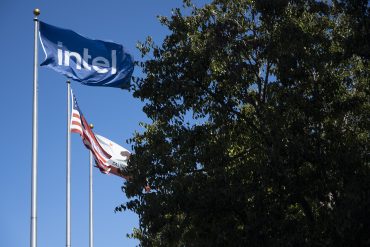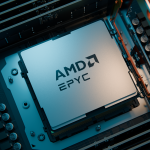
- National Security
- Semiconductors
- Tech Policy
Intel CEO Under Fire for China Ties Amid Foundry Losses
5 minute read

Intel CEO’s Chinese investment ties spark national security debate as semiconductor maker seeks government funding
Key Takeaways
- Intel shares drop 5% in premarket trading after President Trump calls for CEO Lip-Bu Tan’s immediate resignation over alleged conflicts of interest with Chinese companies.
- Senator Cotton raises national security concerns about Tan’s investments in Chinese military-linked companies, questioning Intel’s stewardship of American taxpayer dollars.
- Intel faces $3.17 billion operating loss in foundry division as the company cuts spending and delays major manufacturing projects in Germany, Poland, and Ohio.
Introduction
Intel faces mounting political pressure as President Donald Trump demands the immediate resignation of CEO Lip-Bu Tan over alleged conflicts with Chinese companies. The chipmaker’s stock declined 5% in premarket trading following Trump’s Truth Social post, which called Tan “highly CONFLICTED” and declared there is “no other solution to this problem.”
The controversy centers on Tan’s investment ties to Chinese companies, some with military connections, raising questions about national security implications for America’s largest domestic semiconductor manufacturer. Intel has not responded to requests for comment regarding the allegations.
Key Developments
Tan assumed Intel’s top position in March after the company replaced Pat Gelsinger amid declining sales and financial challenges. The leadership change was designed to stabilize Intel’s operations and restore investor confidence in the struggling chipmaker.
Senator Tom Cotton, R-Ark., escalated concerns in a letter to Intel’s chair, highlighting Tan’s connections to Chinese companies and referencing a previous criminal case linked to Cadence Design, where Tan served as CEO until 2021. Cotton questioned whether Intel required Tan to divest holdings in chip makers with ties to the Chinese Communist Party and People’s Liberation Army.
According to CNBC, Tan maintains investments in several Chinese companies through direct holdings and venture funds. These investments include entities with documented connections to China’s military apparatus, creating potential conflicts with Intel’s role as a recipient of U.S. government funding.

Market Impact
Intel’s stock price reflects immediate investor concern over the leadership controversy. The 5% premarket decline signals market uncertainty about the company’s strategic direction and potential political ramifications.
The timing proves particularly damaging as Intel works to restore confidence following recent financial struggles. The company’s 2023 annual revenue reached $54.2 billion, but shrinking margins from increased competition and R&D spending pressure profitability.
Institutional investors now face uncertainty about Intel’s stability, potentially triggering portfolio reassessments. Competitors AMD and Nvidia stand to benefit from Intel’s turmoil, as customers may perceive leadership instability as a risk factor in vendor selection decisions.
Strategic Insights
Intel’s foundry division represents a critical vulnerability, recording a $3.17 billion operating loss that prompted significant operational changes. Tan recently announced cuts to the costly division and scrapped manufacturing projects in Germany and Poland while consolidating operations in Vietnam and Malaysia.
The company also slowed development of its Ohio chip factory, part of a broader $40 billion U.S. manufacturing investment planned over the next decade. These delays could impact Intel’s ability to compete with Taiwan Semiconductor Manufacturing Company and other global foundry leaders.
Leadership stability becomes crucial in semiconductors due to long development cycles and massive capital requirements. Intel’s current focus on Meteor Lake and Arrow Lake processors, plus its pivot toward AI chips and data center products, requires consistent strategic execution.
Expert Opinions and Data
“Intel is required to be a responsible steward of American taxpayer dollars and to comply with applicable security regulations,” Cotton wrote in his letter to Intel’s leadership. His concerns reflect broader Washington anxiety about foreign influence in critical technology sectors.
The controversy occurs as Intel prepares to receive a significant portion of the $52 billion allocated for domestic semiconductor manufacturing under the CHIPS Act. Government funding comes with strict security requirements and oversight provisions designed to prevent foreign interference.
Industry analysts note that political scrutiny of tech leadership will likely intensify as companies become more integral to national security. The semiconductor sector faces particular attention due to its strategic importance and historical dependence on Asian manufacturing.
Conclusion
Intel confronts a leadership crisis that combines financial pressures with national security concerns at a critical juncture for American semiconductor manufacturing. The political controversy surrounding Tan’s Chinese investments threatens to undermine the company’s recovery efforts and its role in U.S. technology independence initiatives.
The situation demonstrates how geopolitical tensions increasingly shape corporate governance decisions in the technology sector. Intel’s response to these pressures will influence not only its own trajectory but also broader industry practices regarding international business relationships and executive qualifications.








